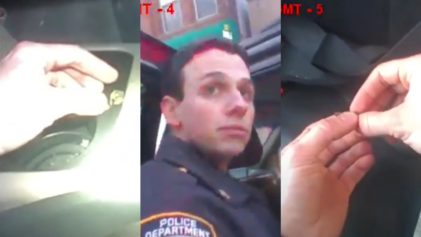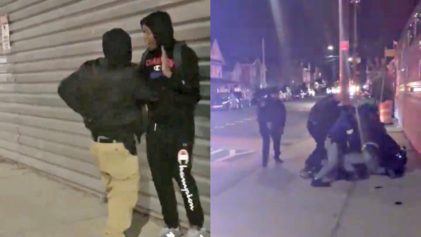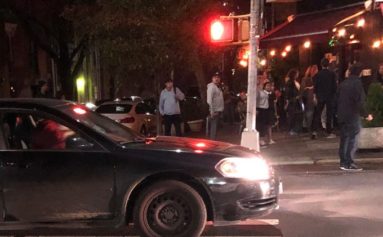Can the disturbing cases of police brutality and excessive force that have plagued cities like New York and Los Angeles in recent years be traced back to William Bratton?
In an intriguing article in Slate by writer Justin Peters, he makes a strong case that the answer is a resounding “Yes.”
Peters writes that the broken windows philosophy of policing enthusiastically advocated by Bratton—that if officers crack down on petty quality-of-life offenses it will prevent the major crimes from occurring—is responsible for the increases in complaints of excessive force against police in New York and Los Angeles over the past two decades. Bratton was the commissioner in New York, then Los Angeles, and now back in New York to oversee the rise in complaints in both places.
Before Eric Garner died from a police-administered chokehold earlier this year, there was William Cardenas in 2006 in Los Angeles who said he couldn’t breathe during an officer chokehold, and Anthony Baez who was killed in the Bronx in 1994 with an officer chokehold. As Peters points out, Bratton—whom he calls “the most celebrated police official of his era”—was in charge during each of these cases and, after each one, spewed encouraging rhetoric about police “retraining.”
“We’ve heard that before. From New York to Los Angeles to New York again, William Bratton’s career has been pockmarked by ‘I can’t breathe’–grade incidents, by increased civilian complaints of excessive force,” Peters writes. “And every time, more or less, Bratton has responded by calling for training reforms and resisting outside intervention into police disciplinary methods. Police brutality and excessive force are problems in all police departments, not just Bratton’s. But Bratton’s reputation as a reformer, as well as his history of evading responsibility for excesses committed by officers under his command, merit more scrutiny than they’ve received.”
Peters said that Bratton is a superior manager who has brought positive innovations to every department he has run—modernizing police departments, improving community relations, boosting officer morale, and reducing crime rates. But it has come with a price for the residents of Black and brown communities.
“But at every stop, community complaints have risen and officers have become less accountable to the communities they serve,” he writes. “This is in part because of Bratton’s adherence to broken windows, which requires officers to aggressively enforce quality-of-life violations. Doing this well requires better training. But Bratton’s career has been characterized by training breakdowns, and an ostensible inability to communicate with his officers.”
As demonstrated by the recent police slowdown in New York protesting Mayor Bill de Blasio’s support for Black demonstrators, broken windows requires police to make discretionary arrests. That is, to arrest and harass people who aren’t committing real crimes. So when New York police wanted to show their displeasure with the mayor, they started making only necessary arrests, when someone was committing a real crime. As many observers asked, why can’t they just make necessary arrests in the first place?
“The one thing that Bratton’s supporters and detractors agree on is that he is a fantastic manager and communicator, someone who cuts through bureaucracy and inspires loyalty in his officers,” Peters writes. “One way to garner the support of your underlings is to shield them from external criticism. And Bratton has a record of resisting transparency in his police departments. Overzealous civilian oversight or the threat of being held accountable for their actions causes cops to be tentative, which makes them less effective at maintaining order. Throughout his managerial career, Bratton has consistently advocated for policies that give police officers latitude to enforce the law free from outside scrutiny and discipline.”
As long as Bratton is at the helm, Peters doesn’t expect to see the kind of reforms in the behavior of the NYPD that much of the public is clamoring for.
“You can’t fix broken windows abuses unless you’ve got a commissioner willing to crack down on overaggressive policing. But you can’t effectively deploy broken windows unless you tacitly encourage cops to be overaggressive,” he writes. “And that’s the problem. More than 20 years into the broken windows experiment, it’s obvious that improved training won’t fix the abuses the philosophy engenders. Overaggression in broken windows policing isn’t anomalous—it’s normative behavior.”



